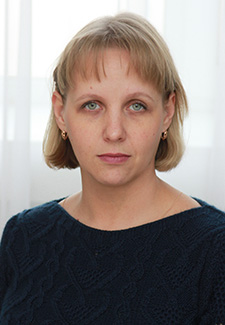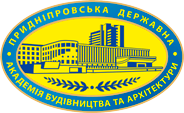Scientific profile

Candidate of Physical and Mathematical Sciences, Associate Professor
Natalia
VELMAHINA
Contacts and CV
Research
Current research
«Models, methods and information technologies of research of processes and systems in the construction industry» (2021 – 2023, State Registration № 0121U111058).
More
Past research
Scientific topic of the Institute of Mechanics named after S.P. Tymoshenko of the National Academy of Sciences of Ukraine «Modern problems of oscillations, stability and controllability of elements of mechanical systems under dynamic loads» (State Registration No. 0112U000251, 2015-2016)
More
The state budget theme of the State Educational Institution of the State of Ukraine «Models, methods and information technologies for the study of processes and systems in construction» (State Registration No. 0116U004537, 2015-2020)
More
Expertise Summary
Formalization of management tasks of complex organizational and technical objects and complexes, development of criteria for evaluating the quality of their functioning; optimization of the parameters of the interaction process of enterprises in a single production system; application of modern methods and information technologies in distance education.
Courses
1. Linear algebra and analytic geometry
The discipline «Linear Algebra and Analytical Geometry» belongs to the list of normative educational disciplines, provides the professional development of a bachelor and is aimed at forming in the future specialist the basic concepts, theoretical principles and methods necessary for the study of special disciplines. The course program consists of the following main sections: linear algebra; elements of vector algebra; analytical geometry on the plane and in space.
2. Differential equations
The discipline «Differential Equations» belongs to the list of normative educational disciplines, provides the professional development of a bachelor and is aimed at forming the basic concepts, theoretical principles and methods of solving differential equations in the future specialist. The program defines the scope of knowledge of differential equations necessary for the preparation of bachelors in the specialty «Computer Science». The main attention is paid to the study of differential equations of the first order and higher orders, systems of ordinary differential equations, elements of operational calculus.
3. Mathematical methods of operations research
The discipline «Mathematical methods of operations research» belongs to the list of normative educational disciplines, provides professional development of a bachelor and is aimed at forming in the future specialist the basic concepts, theoretical propositions and methods of modern optimization theory and the ability to apply them to the solution of a wide range of applied problems to the extreme. The course program consists of the following main sections: models and modeling; types of optimization problems; double hundred in LP; tasks of the transport type; discrete and stochastic programming.
4. Numerical Methods
The discipline «Numerical methods» belongs to the list of normative educational disciplines, provides the professional development of a bachelor and is aimed at forming in the future specialist the basic concepts, theoretical provisions and methods necessary for the study of special disciplines. The course program consists of the following main sections: mathematical modeling; the accuracy of the computational experiment; numerical methods of solving systems of linear algebraic equations, nonlinear equations and systems; methods of approximation of functions; numerical integration and differentiation; numerical methods of solving ordinary differential equations.
5. Technologies for creating software products
The discipline «Technology of creating software products» belongs to the list of normative educational disciplines. The main tasks of this course are the assimilation of knowledge on the basics of creating large software systems using life cycle processes, starting with the assignment of requirements and ending with its support. The educational discipline is aimed at studying the main stages of the life cycle of a software product, namely requirements analysis, design, development, testing and support.
